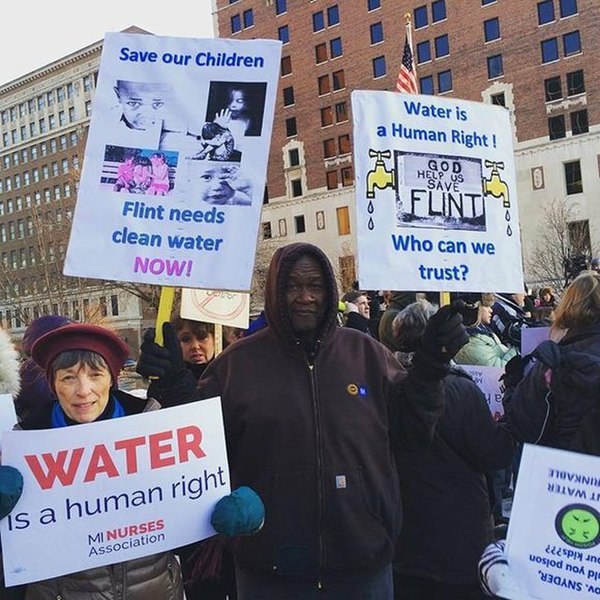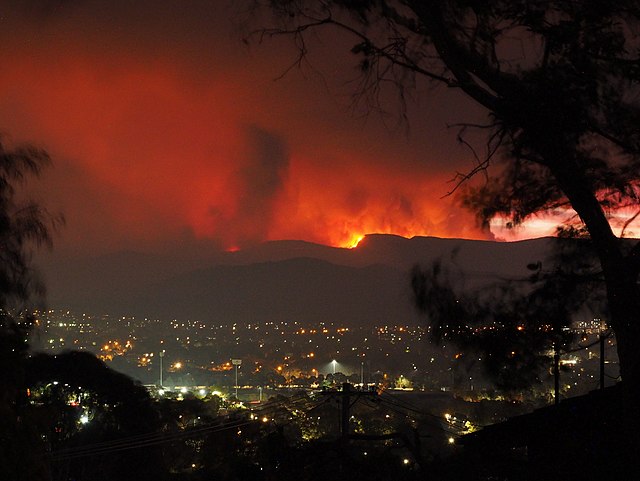Climate change vulnerability
Climate change vulnerability is a concept that describes how strongly people or ecosystems are likely to be affected by climate change. Its formal definition is the "propensity or predisposition to be adversely affected" by climate change. It can apply to humans and also to natural systems. Issues around the capacity to cope and adapt are also part of this concept. Vulnerability is a component of climate risk. Vulnerability differs within communities and also across societies, regions, and countries. It can increase or decrease over time.
Hurricane Ida (2021) flooding effects in Pennsylvania, US where poorer neighbourhoods were more affected.
The Flint Water Crisis (2014) in Flint, Michigan represents an intersection of injustice and climate change impacts we can expect to see. With climate change setting in, water access will become increasingly scarce, and if available, not filtered in many communities.
Image: 062821Yreka Fire Cal Fire 2wiki
Image: Bleachedcoral
In common usage, climate change describes global warming—the ongoing increase in global average temperature—and its effects on Earth's climate system. Climate change in a broader sense also includes previous long-term changes to Earth's climate. The current rise in global average temperature is primarily caused by humans burning fossil fuels. Fossil fuel use, deforestation, and some agricultural and industrial practices add to greenhouse gases, notably carbon dioxide and methane. Greenhouse gases absorb some of the heat that the Earth radiates after it warms from sunlight. Larger amounts of these gases trap more heat in Earth's lower atmosphere, causing global warming.
Sea ice reflects 50% to 70% of incoming sunlight, while the ocean, being darker, reflects only 6%. As an area of sea ice melts and exposes more ocean, more heat is absorbed by the ocean, raising temperatures that melt still more ice. This is a positive feedback process.
Different levels of global warming may cause different parts of Earth's climate system to reach tipping points that cause transitions to different states.
Ecological collapse. Coral bleaching from thermal stress has damaged the Great Barrier Reef and threatens coral reefs worldwide.
Extreme weather. Drought and high temperatures worsened the 2020 bushfires in Australia.







